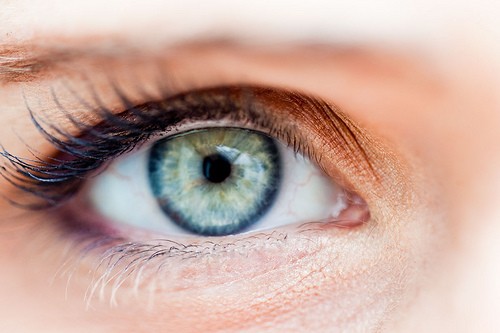
A simple eye test may help diagnose Alzheimer's disease early and track its progression, new research shows.
The test, developed by an international team of researchers, provides an accurate diagnosis of the brain disorder in the very beginning by detecting specific changes in the retina cells.
Dr R Scott Turner, director of the Memory Disorders Program at Georgetown University Medical Center (GUMC) in the US, who presented the findings at the annual meeting of the Society for Neuroscience said that as the retina is directly linked to the brain, the loss of retina cells can signal the onset of Alzheimer's disease.
"The retina is an extension of the brain so it makes sense to see if the same pathologic processes found in an Alzheimer's brain are also found in the eye," Dr Turner, who is one of the authors of the study, said in a statement.
During the trial, researchers from the GUMC and the University of Hong Kong genetically engineered mice models to develop Alzheimer's disease (AD). Remarkably, the researchers found similarities in Alzheimer's disease and glaucoma - an eye condition caused by build-up of pressure inside the eyes. The eye condition, that damages optic nerve of the eye, often leads to loss of vision.
Mechanisms that lead to both diseases may be related to changes in retinal ganglion cell layer and the inner nuclear layer that play a major role in the transmission of visual information to the brain.
During the experiment, researchers noticed a loss of thickness in both the inner nuclear layer (37 percent) and the retinal ganglion cell layer (49 percent) in the animals with the brain disease, compared to healthy mice.
Scientists said that retinal thinning is a clear indication of the onset of the brain diseases like Alzheimer's and dementia. "We're hoping that this translates to human patients and we suspect that retinal thinning, just like cortical thinning, happens long before anyone gets dementia," Dr Turner told BBC News.
Alzheimer's disease is a brain disorder that leads to the destruction of memory and other important functions of the brain, including thinking, communication and behaviour. It affects the memory of elderly people above 65 years of age, following which protein plaques and tangles are formed in the brain, damaging and killing brain cells. According to Fisher Center for Alzheimer's Research Foundation in the US, the disease strikes every 68 seconds. It is one of the most common causes of dementia. As there are no specific tests to identify Alzheimer's disease, doctors diagnose it through symptoms and testing thyroid disorder, vitamin deficiency, brain imaging and neuropsychological factors.
In the new study, the researchers hoped that optical coherence tomography can be used to measure the structure and thickness of the retina. The most interesting fact is that the new technique is inexpensive and non-invasive.
"This study suggests another path forward in understanding the disease process and could lead to new ways to diagnose or predict Alzheimer's that could be as simple as looking into the eyes," Dr Turner, said.

















